Information
Nigeria: Why We Are Where We Are (1) Fola Ojo
Ojo has wondered why other big or small countries have what he described as “alluring testaments” while Nigeria is plunged to what he called “undeserved and endless troubles in all endeavours.”
The founder of City of Praise Milwaukee, Wisconsin United States, a journalist and contributing columnist with The PUNCH, one of the biggest and largest African newspapers with headquarters in Lagos, Folahan William Ojo, has shade light on why Nigeria is where it is.
Ojo has wondered why other big or small countries have what he described as “alluring testaments” while Nigeria is plunged to what he called “undeserved and endless troubles in all endeavours.”
He queries why Nigeria bears the “Giant of Africa” title “in abundant and abounding divine endowments in human and natural resources,” while “the country is still far away from that place in history from where milk and honey flow.”
Ojo juxtaposes Japanese exports of around $717 billion without a single drop of crude oil, with Nigeria which possesses enormous natural resources deposited in its soil in different regions.
The full read :
I love studying up on nations. Mine is a ravishing interest in stories of leaders with great visions and their countries doing exploits economically even with minimal natural resources. Moments I stumble on enamouring stories of big and small countries, a natural reflex in me immediately juxtaposes their alluring testaments with Nigeria’s undeserved and endless troubles in all endeavours.
READ ALSO: Hunger Crises: Food Crisis in Nigeria May Last Longer than Anticipated, Akin Olotu
Biafra: Justice Binta Nyako Directs Tinubu-led Fed. Govt. And Nnamdi Kanu To Pursue Reconciliation
US Mission To Nigeria Announces $27m Humanitarian Assistance
Despite the Giant of Africa’s abundant and abounding divine endowments in human and natural resources, the country is still far away from that place in history from where milk and honey flow. Regrettably, many countries with economic success stories do not possess a third of the natural gifts Nigeria can boast of. It is why I ask this question this week: Why is Nigeria where she is as a nation?
I love studying up on nations. Mine is a ravishing interest in stories of leaders with great visions and their countries doing exploits economically even with minimal natural resources. Moments I stumble on enamouring stories of big and small countries, a natural reflex in me immediately juxtaposes their alluring testaments with Nigeria’s undeserved and endless troubles in all endeavours.
Despite the Giant of Africa’s abundant and abounding divine endowments in human and natural resources, the country is still far away from that place in history from where milk and honey flow. Regrettably, many countries with economic success stories do not possess a third of the natural gifts Nigeria can boast of. It is why I ask this question this week: Why is Nigeria where she is as a nation?
Japan is a mountainous, volcanic island country, and the world’s fourth largest economy. It is the largest importer of coal and liquefied natural gas; and the second largest importer of crude oil. Its natural resources are fish and scanty mineral resources. Japan exports automobiles, consumer electronics, computers, semiconductors, copper, iron, and steel. This country with no drop of crude oil has exports of around $717 billion. And Nigeria has much more than Japan in resources, but no testaments of remarkable progress.
Less than 600 miles from Japan is South Korea; the world’s 13th largest economy. The World Bank once submitted that South Korea went from an African standard nation (on a par with Ghana) in the 1960s to one of the world’s leading industrial powerhouses today. Like Japan, her mineral resources are sparse. Exports are around $632 billion and highly dependent on foreign-imported materials. On the other side of South Korea is Italy; the world’s 10th largest economy and a leading industrial nation.
Natural resources here too are scanty. And Italian land is not commodious for farming. To a limited and minimal extent in this dispensation, Nigeria grows a portion of her food, but Italy cannot touch what Nigeria has touched in agricultural ‘revolution.’ The country imports most of its food, imports 99.7 per cent of its solid fuels demand, 92.5 per cent of oil, and 91.2 per cent of natural gas. Most raw materials needed for manufacturing are imported. But Italy’s total annual exports are $626 billion. Every state in Nigeria has natural resources in varying commercial quantities, but millions are still hungry and poor. Why are we where we are?
Singapore also has very few natural resources. This tiny island has become one of the world’s most prosperous and advanced economies. Singapore imports everything she needs, including water from neighbouring Malaysia. Forty-eight per cent of Singaporean exports are made up of re-exports. They import raw goods and refine them for export purposes. The tiny island produces 10 per cent of the world’s semiconductor wafer. Singapore’s exports total $638 billion. It is currently the 31st largest economy in the world. Nigeria has an overwhelming advantage to do much better than all these nations put together, but we are still stuck where we are, and we keep asking why.
Switzerland is a completely landlocked country but the natural inconvenience is not a hindrance to the nation becoming one of the world’s leading exporters. Its annual exports run to about $629 billion. Switzerland has virtually no natural resources, and its annual trade balance is usually in the red, owing to the economy’s reliance on large quantities of imported raw materials for industry. Switzerland has a very strong food processing and confectionery industry, producing multinational food companies like Nestle, and luxurious watch-manufacturing, with well-known global brands such as Rolex and Swatch. The country is the 20th largest economy in the world. In development, Nigeria is hundreds of years behind Switzerland, and with our endowment, must this be so?
Nigeria is an island of wealth, a trough of tintinnabulation treasures, a penstock of prosperousness, a depository of abundant and abounding natural resources, the home of innumerable sages, an arsenal of intellectuals, the harbour of highbrows, and a human assemblage of geeks and deft double-domes with nothing much to show for the divine bestowment. Juxtaposing Nigeria’s wealth with the prevalent extant poverty firestorm ravaging the country is a noisome paradox and a fetid contradiction.
Nigeria is the 12th largest oil producer in the world and has the 10th largest proven oil reserves. Iron ore, coal, tin, columbite, limestone, lead, zinc, gold, silver and more litter our land. Our fertile soil, forests, and water resources make it suitable for crops like cocoa, rubber, palm oil, and tropical fruits to grow in abundance. Significant deposits of uranium are found in some parts of the North and large deposits of bitumen are found in the southwestern region. Nigeria is blessed beyond measure. Unlike other nations with no incomparable profitable resources, the country’s total export for 2022 was a paltry $70 billion derived solely from crude oil and its products.
With Nigeria’s vast wealth, it shouldn’t be a sticky wicket if every Nigerian desires to drive an expensive jeep or rest their hurting bones on water beds in mansions. This should be a cinch. But an average Nigerian is not asking for too much from their government or driven by the morbid ambition of big bank accounts. They want to feed their families and desire a safe place to raise their children. Give Nigerians good roads, rebuild their run-down schools, revamp the rickety hospitals, provide regular power supply, and flood the market with enough and affordable food items, and Nigerians are satisfied. That is not too much to ask for in a country that has more than enough. But the dream of an average Nigerian to live a decent life seems far from actualisation because corruption will not allow it.
Nigeria’s natural resources have the potential to drive economic growth and development but their exploitation and management have been affected by various challenges, including corruption. The corruption carnival in Nigeria is not quieting down. The magnitude of the evil is Brobdingnagian in nature and grows with every government in power. A free-for-all fiesta of stealing among men and women with access to power now appears like the norm. Blisteringly unapologetic thieves and coddlers of blizzards of corruption are still subtly watering the ancient wall. These garroting and goading beings continue to pillage our patrimonies in a frenzy. Over 60 years after independence, corruption in Nigeria is still considered an unchangeable lifestyle. With corruption, no country has a tomorrow. It is the reason Nigerians are not getting what they must get by right. This is why we are where we are.
Entertainment
P. Diddy: Full List Of Lawsuits, Allegations Against The American Music Mogul
Puff Daddy, is currently in jail as he faces charges of racketeering and sex trafficking.
American Rapper and Hip-hop Mogul, P. Diddy, Sean Diddy Combs, Puff Daddy, is currently in jail as he faces charges of racketeering and sex trafficking. Sky News reported that P. Diddy was allegedly indicted on the following:
- Combs is alleged to have “abused, threatened, and coerced women and others around him to fulfil his sexual desires, protect his reputation, and conceal his conduct” dating back to at least 2008.
- The 54-year-old is accused of leveraging his employees, resources, and industry influence to establish a “criminal enterprise whose members and associates engaged in, and attempted to engage in, among other crimes, sex trafficking, forced labour, kidnapping, arson, bribery, and obstruction of justice”.
- He is accused of coercing female victims and male sex workers into participating in drug-fueled sexual acts, referred to as “Freak Offs,” according to the legal document.
- Sky News said that the document mentions “Freak Offs” 16 times, describing them as elaborate, staged sexual performances that Combs orchestrated, directed, and often recorded, while also engaging in the acts.
- Prosecutors claim that victims were administered controlled substances during events that sometimes lasted for days, keeping them “obedient and compliant.” Combs allegedly subjected them to “physical, emotional, and verbal abuse” to compel their participation.
- The indictment further alleges that Combs and his business associates “engaged in acts of violence, threats of harm, both physical and reputational and verbal abuse.” These acts reportedly included kidnapping and arson when individuals who witnessed the alleged abuse challenged his authority or reputation.
- READ ALSO: US ELECTION: Second Attempt To Assassinate Pres. Trump Fails, Other Historical Assassination Attempts
- Nigeria To Receive $5.600,000 From Bill Gates, For Health And Agricultural Reforms, GMOs
Bill Gates, Anthony Fauci and conspiracy theories (part 2)
List Of Other Lawsuits Against Puffy, Puffy Daddy, P. Diddy, Sean Diddy
April Lampros
CNN reported that Lampros’ suit claims: “What Mr. Combs displayed as kind gestures quickly manifested into an aggressive, coercive, and abusive relationship based on sex.”
Joi Dickerson-Neal
Also in November last year, Joi Dickerson-Neal filed a lawsuit claiming Combs drugged and sexually assaulted her in 1991 while she was a college student.
She also alleged that Combs secretly recorded the assault.
This lawsuit was filed under New York’s temporary window allowing older sexual assault claims that would typically be beyond the statute of limitations.
Additional Sexual Assault Allegations
The music mogul faced another lawsuit in December 2023, where an unnamed woman accused him of drugging and gang-raping her in 2003 when she was 17 years old.
Diddy’s Son Christian Accused of Sexual Assault
In April, a lawsuit naming “Diddy” and his son Christian Combs alleged that Christian sexually assaulted a woman working on a chartered boat in 2022.
The plaintiff’s attorney said: “Like father, like son. It gives us no joy or pleasure in filing this suit against Christian Combs who has clearly adopted his father’s pattern and practice of depravity,” according to NBC. Sean and Christian Combs’ lawyers have denied the claim.
Crystal McKinney
In May, former model Crystal McKinney filed a lawsuit in Manhattan federal court accusing Combs of drugging and sexually assaulting her at his New York recording studio in 2003.
Forbes makes a list of lawsuits against the American rap mogul, Puff Daddy:
Forbes reported that on September 24, Thalia Graves filed a federal lawsuit in New York on Tuesday claiming she was offered a glass of wine by Combs and Sherman in 2001, when she was 25, that made her “lightheaded, dizzy and physically weak” before she lost consciousness and was raped by the two men her while her hands were tied behind her back.
September 24, Combs is sharing a unit with disgraced former cryptocurrency billionaire Sam Bankman-Fried at the Metropolitan Detention Center in Brooklyn, New York, according to The New York Times, as the former crypto mogul serves out a 25-year sentence in prison for counts of conspiracy, fraud and money laundering linked to a scheme that lost former FTX customers, lenders and investors several billion dollars.
September 17, A memo filed with New York judge Robyn F. Tarnofsky accuses Combs and co-conspirators of setting fire to an unnamed person’s car using a Moltov cocktail in an accusation that matches one brought by Combs’ ex-girlfriend, Cassie Ventura, who said in a lawsuit filed last year that Combs blew up a car owned by rapper Kid Cudi.
September 17, A federal court in Manhattan unseals charges against Combs for racketeering, sex trafficking and transportation to engage in prostitution, alleging he “abused, threatened, and coerced women and others around him to fulfill sexual desires, protect his reputation, and conceal his conduct.”
September 16, Combs is arrested in Manhattan after being indicted by a grand jury.
May 29, Federal investigators may bring Combs’ accusers to testify before a grand jury soon and most plaintiffs who have filed lawsuits against the rapper have already been interviewed by investigators, sources told CNN—a move that could indicate prosecutors are looking to charge somebody, though no charges have been filed yet.
February 26, In February, producer Rodney “Lil Rod” Jones sues the rapper in New York in February and alleges he was “subjected to unwanted advances by associates of Diddy at his direction” and was forced to engage in relations with sex workers he hired. In a set of widely covered allegations, Jones says in the lawsuit that Combs regularly hosted “sex-trafficking parties” with underage women and illegal drugs, and implies record label executives who looked the other way financially benefited from access to celebrities and dignitaries like the British royal Prince Harry, who is not accused of any wrongdoing or of attending parties himself (Combs’ attorney tells the Los Angeles Times the suit includes “reckless name-dropping about events that are pure fiction”).
December 6, Combs is hit with another sexual assault suit in December, accusing the rapper of drugging and participating in a gang rape of the unnamed woman in 2003, when the accuser was 17 years old.
November 23, An anonymous plaintiff accuses Combs and singer-songwriter Aaron Hall of raping her and a friend in 1990 or 1991 after meeting at an MCA Records event in New York—a suit that, like the Dickerson-Neal complaint, was filed shortly before the expiration of a New York law temporarily allowing lawsuits for older assault allegations that would ordinarily be past the statute of limitations.
Cassie Ventura was former girlfriend of P. Diddy who accused him of abuse and rape.
November 17, Ventura’s $30 million suit is settled the day after it was filed for an undisclosed amount, with Ventura telling CNN she chose to “resolve this matter amicably,” while Combs’ attorney says the settlement was “in no way an admission of wrongdoing” and didn’t change his denial of the allegations.
November 16, Cassie Ventura files the suit against Combs, alleging he raped her in 2018 and subjected her to a years-long abusive relationship that included physical abuse and his assertion of “complete control” over her personal and professional life.
Business
Nigeria To Receive $5.600,000 From Bill Gates, For Health And Agricultural Reforms, GMOs
Alongside the activities surrounding the 79th United Nations General Assembly in New York, Vice President Kashim Shettima held a meeting with the Bill and Melinda Gates Foundation leading to the announcement of the donation by the Foundation’s head of Global Development.
Bill and Melinda Gates Foundation is giving Nigeria through Vice President Kashim Shettima, a $5.600,000 funds to speedy up health and agricultural reforms in favour of the GMOs in Nigeria, and flood relief.
Through the Foundation’s head of Global Development Programme, Dr Christopher Elias, Bill Gates pledged $5 million grant approved for Lagos Business School and partners to develop the agricultural economics they called “industrial cassava” and $600,000 for flood relief in Borno State and other health sector initiatives.
Alongside the activities surrounding the 79th United Nations General Assembly in New York, Vice President Kashim Shettima held a meeting with the Bill and Melinda Gates Foundation leading to the announcement of the donation by the Foundation’s head of Global Development.
Recall that on 4 September, Bill Gates had described the Nigeria’s economy as “stagnated” and proposed agricultural reforms for faster and increased growths in crops, fruits, vegetables amongst others to enhance nutritional values of the Nigerian citizens through the agricultural sector.
In that meeting Chaired by Vice President Kashim Shettima, Bill gates urged Nigeria to adopt “innovative crop varieties with shorter growing periods, higher yields, and better pest resistance” pointing to the GMOs to address the food crisis.
READ ALSO: Bill Gates, Anthony Fauci and conspiracy theories (part 2)
Nigeria’s economy stagnated – Bill Gates
Nigeria Is Not Meant To Exist, A Collateral Damage And British Royal Niger Corporation -Burna Boy
Moreover, at the 79th UN General Assembly in New York, VP Shettima reaffirmed to the Bill and Melinda Gates Foundation, the commitment of the administration of President Bola Ahmed Tinubu prioritizing health, nutrition, and agricultural development in Nigeria’s national agenda.
In a statement by Senior Special Assistant to the President on Media and Communications, Office of the Vice President, Stanley Nkwocha, Shettima said: “we are deeply committed to addressing the pressing developmental challenges facing our nation, particularly the significant malnutrition crisis”.
He emphasised the Federal Government’s dedication and urgently working to secure locations for maize production under the Telemaze programme.
VP Shettima, promising swift action to the Gate’s Foundation on import permits for certified seeds, the VP said, “We recognize the critical importance of food security and industrial agricultural development. The Cassava Accelerator programme, in particular, holds immense potential for our economy.
“We are pursuing a whole-of-government approach to digitisation and data exchange systems, which we believe will revolutionise our public services,” he added while reiterating the government’s focus and commitment to digital transformation.
“With the expertise” of Nigeria’s ministers, “and the continued support of partners like the Gates Foundation,” the nation remains confident in its “ability to drive meaningful change and improve the lives of all Nigerians.”
In his response, President of the Global Development Programme at the Gates Foundation, Dr. Christopher Elias, said the Foundation is burdened with worries of the severe flooding in Borno, and is “committed to supporting Nigeria in times of crisis.”
Speaking of Polio, the Foundation said, “We’re impressed by the national task force’s efforts to eliminate variant polioviruses by year-end,” Dr. Elias noted.
Also, President of Global Growth & Opportunity Division at the Bill & Melinda Gates Foundation, Rodger Voorhies, detailed plans for scaling up drought-tolerant maize production and advancing the Nigeria Cassava Investment Accelerator programme emphasizing that a $5 million grant has been approved for Lagos Business School and partners to develop the agricultural economics of industrial cassava.
In his words, “Industrial cassava presents a multi-billion-dollar opportunity for Nigeria,” Voorhees stressed.
He requested import permits for 5,000 metric tons of certified GMO maize seed to build a foundation seed system in Nigeria.
Business
Managing, Leading, Building Institutions And Sustainability
The two primary tasks of a top-level leader are to exploit and explore the organisation with people for now and in the future.
By Babs Olugbemi
One of my concerns for leaders is their capacity to be ambidextrous. Regardless of years of experience, knowledge, and leadership capacity, the lack of a clear distinction between managing and leading on the one hand, leading and building institutions on the second layer, and ultimately focussing on sustainability is a significant threat to successful leadership change.
I have followed events and people at C-suites, coached some, and developed frameworks for leadership development. Based on the personalities and styles of the new leaders, I have confirmed my fears about leadership sustainability in most African organisations.
“Successful leaders can aptly differentiate themselves and their roles without necessarily seeing activities as performance, focussing on what is required of them with appropriate tenacity and influence.”
The challenge for leaders is how to lead for the present and future without losing sight of the stakeholders’ immediate performance expectations. Successful leaders can aptly differentiate themselves and their roles without necessarily seeing activities as performance, focussing on what is required of them with appropriate tenacity and influence.
READ ALSO: Leadership, not God responsible for Africa’s poverty
Afrocentric colonialism: The new face of African oppression
Health: Genotype And Compatibility, Phenotype, Blood Groups And DNA
In my walk as a leadership coach, I have keenly observed leaders who are managing rather than leading. Managing involves ensuring that processes achieve their intended outcomes. Leaders are above managing and should focus on creating an enabling environment for innovation, inventions, and team collaboration. The primary role in leading is not to monitor process outcomes, though critical to the company’s overall objectives, but to align corporate values with the people’s aspirations to create an engaged and ownership-thinking mindset ready to take on challenges and explore opportunities. An alignment of corporate and personal goals will not only deliver the present performance expectations. Still, it will also incubate innovations to adapt to future market demands and the sustainability of the business.
Unfortunately, the capacity for ambidexterity is rare and often marked by leaders’ exposure, approach and styles, perception, and perspective of their roles in the organisation. A leader with a wrong foundation in these areas is set for failure and awaits unfavourable decisions from the board of directors. A top-level leader might manage their teams instead of leading them. Not all leaders can combine leading for the present with building institutions. However, anyone able to submit themselves to an institution-building mechanism can champion sustainability. Aside from being a leadership coach, I help leaders achieve sustainability.
Mathematically, creating an ambidextrous organisation is beyond leading. It is to lead and build an institution that focuses on sustainability in all aspects of the organisation—employee fulfilment, customer retention, strategy effectiveness, performance evaluation, stakeholder management, process improvement, and goal congruence.
In a nutshell, the role of successful leaders in ambidextrous organisations is striking a balance between exploiting current assets and capabilities to ensure short-term success and allocating enough energy and resources to exploration to ensure future viability. The two primary tasks of a top-level leader are to exploit and explore the organisation with people for now and in the future. The two seemingly contradictory aspects—exploitation and exploration—encompass different strategies and processes and have different targets and outcomes (March 1991; O’Reilly & Tushman, 2004; O’Reilly & Tushman, 2013).
O’Reilly and Tushman described the two concepts as follows:
- Exploiting: Exploiting involves building on an organisation’s achievements and maximising returns on previous investments. It focuses on responding to current business demands to remain efficient and competitive within an established market niche, as well as on maintaining an existing customer base and stakeholder relationships. Examples of exploiting are activities focused on continuous improvement, benchmarking, and redesigning business processes.
- Exploring: Exploring focuses on expanding an organisation’s knowledge and capabilities, pioneering new products and services, and discovering and venturing into untapped markets.
The common area of practical bottlenecks in exploiting and exploring in organisations is a need for foundational trust and cohesion among the resources, especially the human capital, which are often treated as costs rather than assets to the organisations. Among all the factors of production, only humans can be ambidextrous with the capacity to think about changes in economic parameters and adjust their behaviours to match the time, content, and contextual requirements.
While organisations might have the resources to deploy in fighting competition, technology to obtain first-mover advantages, and production capacity to maximise output from input, none is compared with the potential of an engaged workforce.
Therefore, for leaders to be successful, they must refrain from operating in the realm of managing. They should operate in the capacity of institution builders, with the mindset of creating sustainable leadership and growth with people first and other factors of production second.
Consequently, only the leaders who prioritise their people over profits, pride, and organisational arrogance will be successful in the long term.
-
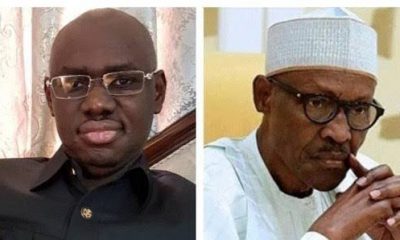
 News5 years ago
News5 years ago$800m oil fraud: resign as Petroleum Minister – Frank tells Buhari, asks for probe
-

 Biafra5 years ago
Biafra5 years agoPROPHECY: Powerful Prophecies for Mazi Nnamdi Kanu and Chief John Nnia Nwodo by Pst. Maxwell Nnawuihe (Text & Video)
-

 Biafra5 years ago
Biafra5 years agoBREAKING: Dragon Flag Can’t Come Down, You Must Allow Our Brave Men To Do Their Job – Nnamdi Kanu
-
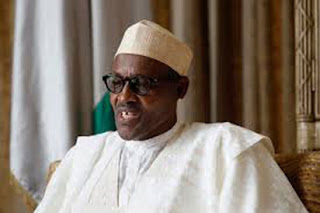
 Business8 years ago
Business8 years agoNEWS PAPER HEADLINES FOR TODAY THURSDAY 28 SEPT 2017
-
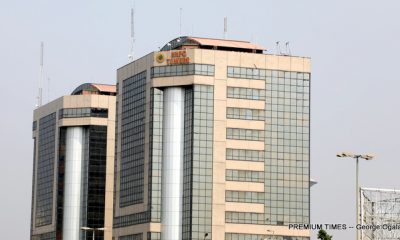
 Business4 years ago
Business4 years agoFUEL: PPPRA removes new petrol price post as NNPC insists no hike
-
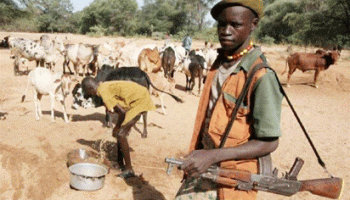
 Business7 years ago
Business7 years agoSuspected Fulani militia kill two in fresh Taraba attacks
-
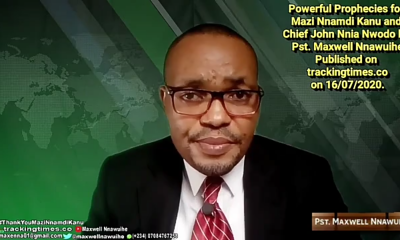
 Biafra5 years ago
Biafra5 years agoVIDEO: Powerful Prophecies for Mazi Nnamdi Kanu and Chief John Nnia Nwodo by Pastor Maxwell Nnawuihe
-
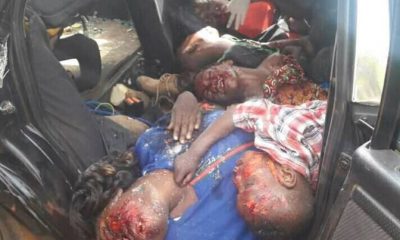
 News6 years ago
News6 years agoA fatal accident along Benin/Auchi express way has claimed the lives of an entire family while traveling for Christmas.